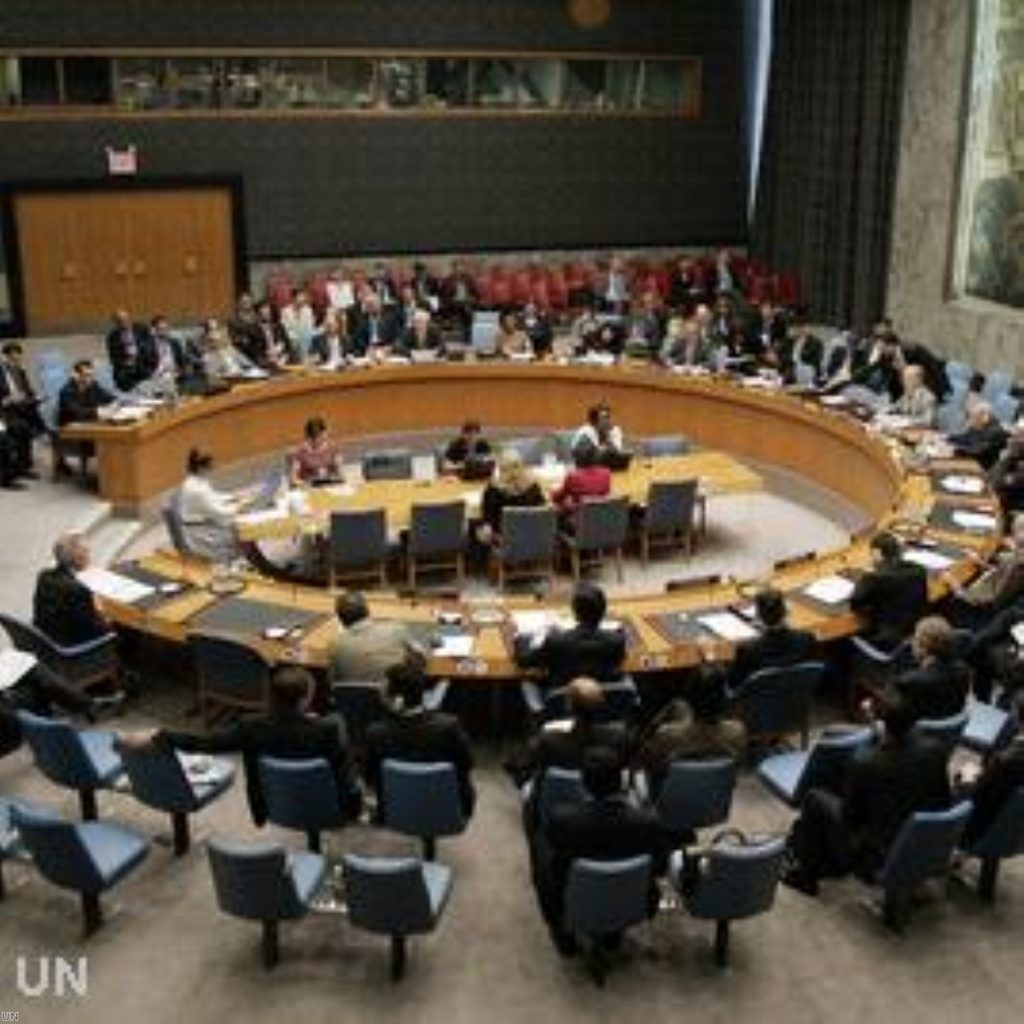‘Race against time’ for Libya no-fly zone
A vote is expected at the UN after the US abandoned its opposition to military action against Muammar Gaddafi’s regime in Libya.
As rebel forces continue to struggle against Colonel Gaddafi’s military, the possibility of a no-fly zone and even air strikes against Libyan targets is now being contemplated in New York.
Downing Street said there was a “race against time” to get international approval for a no-fly zone as the struggle for control in Libya continued to intensify.


“We will do our utmost to ensure the passing of a resolution which places the maximum pressure on the Libyan regime and which extends protection to the beleaguered and oppressed civilian population,” William Hague said.
Rebel resistance looked increasingly vulnerable as fighting took place over Ajdabiya, the last town before their stronghold of Benghazi. By early afternoon, there were reports of bombing in the city.
Defence experts say holding the stronghold will be an easier task for the lightly armed rebel fighters, but warn that Col Gaddafi’s forces continue to hold significant advantages in terms of military materiel.
Reports emerged this morning that a helicopter, artillery and tanks were being deployed by the rebels. But Col Gaddafi’s son Saif al-Islam has insisted the fall of Benghazi can be expected “within 48 hours”.
Susan Rice, the American ambassador to the UN, indicated yesterday that US reluctance to France and Britain’s calls for a no-fly zone appeared to be coming to an end.
“We need to be prepared to contemplate steps that include, but perhaps go beyond, a no-fly zone at this point, as the situation on the ground has evolved and as a no-fly zone has inherent limitations in terms of protection of civilians at immediate risk,” she told reporters.
David Cameron announced to MPs yesterday that Britain had worked on a draft resolution earlier this week with France, the US, Lebanon and others.
Yesterday William Hague told the Commons’ foreign affairs committee that the threat of a no-fly zone may have already had a positive impact.
“One can speculate that they have used those air assets so far in a particular way in order to avoid overwhelming international support for a no-fly zone, mass attacks on civilian locations and so on,” he told the committee.
“So it is entirely possible that the prime minister, raising that possibility, has saved many lives so far.”
Mr Cameron spoke to a number of Arab leaders last night encouraging them to take part in any military action which might come.
Libya’s ambassador to Britain, Omar Jelban, was summoned to the Foreign Office last night as the UK kept up the pressure on Col Gaddafi’s regime.
Permanent under-secretary Simon Fraser warned Mr Jelban that “perpetrators of violence against civilians will be held to account”, a Foreign Office statement said.
Mr Fraser rejected criticisms that Britain was talking to rebel force leaders, or “legitimate political interlocutors”.









